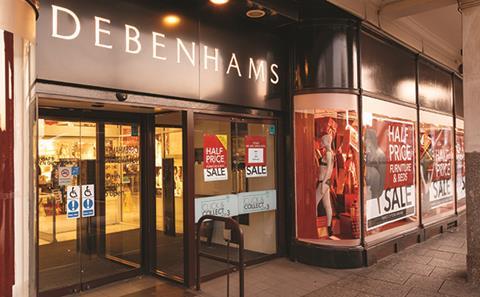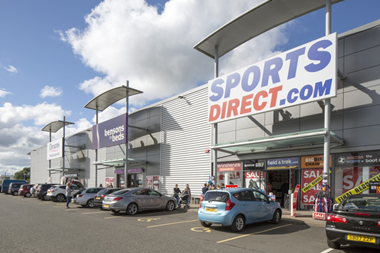Short sellers have made some pretty astute bets against property firms in recent years.

After the EU referendum, they targeted estate agency group Countrywide, whose shares have plummeted more than 70% over the past year. Construction giant Carillion was also consistently one of the most shorted companies on the London Stock Exchange in the years leading up to its collapse earlier this year.
Now hedge funds smell blood in the retail property sector, where they have ramped up bets against NewRiver REIT. They have been targeting big-name retailers such as Pets at Home and Debenhams for some time and it has clearly dawned on them that the negative press about retailers in recent months can’t be good for their landlords.
In the case of NewRiver, the short sellers are looking to exploit a perceived arbitrage between its discount to net asset value and that of other leading retail REITs. It is now the most shorted retail property stock after intu, which seems unable to shake off the short sellers even though its shares are trading at a whopping discount to NAV of 56%.

The shorting of NewRiver is another blow for star fund manager Neil Woodford, who owns about 28% of the company. Other key investments made by his flagship Equity Income fund, such as Capita and Provident Financial, have gone sour so he can ill afford more bad news.
NewRiver’s share price has already fallen by 20% over the past year and if the barrage of bad news about the retail sector continues, it could well fall further this year.
Find out more - The death of retail has been greatly exaggerated
But the hedge funds lining up to target the company may not end up making the killing they are hoping for. There are some good reasons NewRiver trades at a narrower discount to its rivals.
The company’s portfolio is let off low rents, its tenant retention rate is very high, its exposure to the troubled department store sector is limited and there is plenty of potential in its growing pubs portfolio and residential development pipeline.
It is interesting to note that while short interest in NewRiver has been growing, it has fallen away in Hammerson over the past few months despite the continued stream of CVAs, profit warnings and insolvencies. Short selling in Hammerson stock peaked in early April, suggesting that it was the decision to abandon the merger with intu later the same month that was the reason short sellers backed away.
Given that the company is trading at a large discount of 32% and that its growing Irish and outlets portfolios have solid growth prospects, investors have to bank on a dramatic downturn in the fortunes of its UK holdings to justify betting on the share price falling further.
News emerged this week that the company had appointed management consultancy McKinsey & Company to help develop a new strategy. The market will be watching closely to see what they can come up with.
As Bill Grimsey noted in his review of the state of the high street this week, retail insolvencies jumped 8% last year and “may well” increase again this year (p19). If ever there was a time for some fresh thinking from the UK’s leading retail landlords to revive the fortunes of bricks-and-mortar retail, it is now.





























![Metrocentre 01[22]](https://d2bq2usf2vwncx.cloudfront.net/Pictures/380x253/4/6/5/1885465_metrocentre0122_225193.jpg)


No comments yet